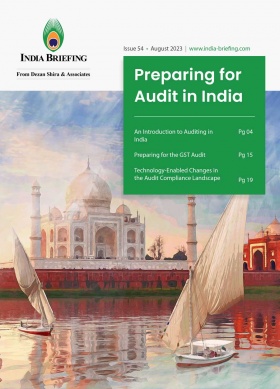List of India’s Public Holidays in 2024 and Best Practices for Companies
We list India’s public holidays in 2024, which includes Gazetted and Restricted holidays. Commercial establishments should note the schedule for the respective States/Union Territories where they are located, factoring in bank holidays, regional festivals, and any other observances that could impact regular working schedules. Organizations should also plan for scheduled election days, which are paid holidays for registered voters.
Planning for India’s holiday calendar is crucial for companies to ensure smooth operations, employee satisfaction, and efficient resource allocation. The approach may vary across different industries.
As is the official practice, the public holiday schedule for 2024 in India is divided across three classifications: Gazetted, Restricted, as well as State and Union Territory.
Many foreign human resource managers struggle with India’s holiday schedule. That is no surprise: the federal and state governments have acknowledged a number of holidays every month to accommodate over 1.3 billion people spread over 36 diverse states and union territories.
Although there are many ways to manage this schedule, most companies in India offer 10 to 14 public holidays—depending upon the company’s past practices and industry norms, as well as the discretion of the concerned states.
Companies doing business with state and government authorities, however, must note their respective holiday calendars. For example, in 2024, government offices in the National Capital Territory of Delhi reportedly have 18 Gazetted holidays. In addition, there are 33 days that are marked as restricted holidays (days for optional holiday).
Overall, holidays in India are governed primarily through the following laws:
- The Weekly Holidays Act, 1942;
- The Industrial Employment (Standing Orders) Act, 1946;
- The National and Festival Holidays Act, 1963;
- The Negotiable Instruments Act 1981;
- The Companies Act 2013; and
- The Shops and Commercial Establishments Act.
However, among these—The National & Festival Holidays Act—is applicable to all establishments in the country, and mandates three holidays in India:
- Republic Day, January 26;
- Independence Day, August 15; and
- Gandhi Jayanti, October 2.
Irrespective of the law that a company, industry, or organization follows, or whether they are public, private organizations, or multinational corporations, every entity in India must necessarily remain closed on these days. Organizations that need to work on those days need to take prior approval from concerned authorities.
Many businesses in India close offices on the Gazetted holidays and grant employees several optional holidays that they may select to observe a non-Gazetted holiday of their choosing. Other businesses simply mirror the holiday schedule observed by the management of their office building.
The below list of holidays are based on the Circular issued by the Ministry of Personnel, Public Grievances and Pensions.
Gazetted holidays in India for 2024
January
January 26, Friday: Republic Day
March
March 25, Monday: Holi
March 29, Friday: Good Friday
April
April 11, Thursday: Id-ul-Fitr
April 17, Wednesday: Ram Navami
April 21, Sunday: Mahavir Jayanti
May
May 23, Thursday: Buddha Purnima
June
June 17, Monday: Id-ul-Zuha (Bakrid)
July
July 17, Wednesday: Muharram
August
August 15, Thursday: Independence Day
August 26, Monday: Janmashtami
September
September 16, Monday: Milad-un-Nabi (Birthday of Prophet Muhammad)
October
October 2, Wednesday: Mahatma Gandhi’s Birthday
October 12, Saturday: Dussehra
October 31, Thursday: Diwali
November
November 15, Friday: Guru Nanak’s Birthday
December
December 25, Wednesday: Christmas Day
Non-Gazetted / restricted holidays in India for 2024
January
January 1, Monday: New Year’s Day
January 13, Saturday: Lohri
January 14, Sunday: Makar Sankranti
January 15, Monday: Pongal/Magha Bihu
January 17, Wednesday: Guru Gobind Singh’s Birthday
January 25, Thursday: Hazrat Ali’s Birthday
February
February 14, Wednesday: Basant Panchami
February 19, Monday: Shivaji Jayanti
February 24, Saturday: Guru Ravidas’ Birthday
March
March 6, Wednesday: Swami Dayananda Saraswati Jayanti
March 8, Friday: Maha Shivratri
March 24, Sunday: Holika Dahan
March 31, Sunday: Easter Sunday
April
April 5, Friday: Jamat-Ul-Vida
April 9, Tuesday: Chaitra Sukladi/Gudi Padava/Ugadi/Cheti Chand
April 13, Saturday: Vaisakhi
April 14, Sunday: Meshadi (Tamil Nadu’s New Year’s Day)/ Vaisakhadi (Bengal) / Bahag Bihu (Assam)
May
May 8, Wednesday: Guru Rabindranath’s Birthday
July
July 7, Monday: Rath Yatra
August
August 19, Monday: Raksha Bandhan
September
September 7, Saturday: Ganesh Chaturthi / Vinayaka Chaturthi
September 15, Sunday: Onam or Thiru Onam Day
October
October 10, Thursday: Dussehra (Maha Saptami)
October 11, Friday: Dussehra (Maha Ashtami) / Dussehra (Maha Navmi)
October 20, Sunday: Karaka Chaturthi (Karva Chouth)
November
November 2, Saturday: Govardhan Puja
November 3, Sunday: Bhai Duj
November 7, Thursday: Chhat Puja (Pratihar Sashthi or Surya Sashthi)
November 24, Sunday: Guru Teg Bahadur’s Martyrdom Day
December
December 24, Tuesday: Christmas Eve
State and union territory holidays in India
The list of state and union territory holidays is quite large. Please click here – https://www.india.gov.in/state-and-ut-holiday-calendar – to review local holidays that apply to your place of business.
Concept of ‘dry days’
In addition to office closures, governments in the state and union territories often observe “dry days” or days when the sale of alcohol is not permitted on Gazetted, state, and union territory holidays. Dry days also routinely occur on local election dates.
During the course of the year, local governments may declare additional or fewer dry days at its discretion.
(For India’s Public Holidays in 2023, click here.)
Best Practices for Companies
HR management:
- Employee engagement:
- Identify major festivals and holidays celebrated across different regions in India.
- Plan employee engagement activities around these festivals to foster a positive work culture.
- Leave policy:
- Develop a leave policy that accommodates regional holidays and festivals.
- Encourage employees to plan their leaves well in advance to avoid workforce shortages during critical periods.
- Flexibility and inclusivity:
- Offer flexibility in work hours during festive seasons, allowing employees to balance work and personal commitments.
- Ensure that the holiday calendar is inclusive of diverse religious and cultural observances.
- Communication:
- Communicate the holiday calendar at the beginning of the year to facilitate long-term planning.
- Establish a transparent communication channel to address any concerns or requests related to holidays.
Manufacturing establishments and sourcing:
- Production planning:
- Consider the impact of holidays on production schedules and plan accordingly.
- Stockpile essential materials to mitigate potential supply chain disruptions during holiday periods.
- Shift scheduling:
- Implement flexible shift scheduling to accommodate workforce availability during holidays.
- Train and cross-train employees to ensure that essential roles are adequately staffed.
- Collaboration with suppliers:
- Coordinate with suppliers to understand their holiday schedules and plan procurement accordingly.
- Establish backup suppliers or contingency plans to address potential disruptions in the supply chain.
- Safety measures:
- Emphasize safety measures during peak holiday seasons to account for potential distractions and increased workload.
Services industry:
- Customer service planning:
- Anticipate increased customer inquiries and service requests during holiday seasons.
- Plan customer service staffing levels accordingly to maintain service quality.
- Remote work policies:
- Develop and communicate remote work policies to accommodate employees who may need to travel during holidays.
- Ensure that technology infrastructure supports remote work seamlessly.
- Client communication:
- Inform clients well in advance about any potential delays or changes in service delivery due to holidays.
- Set realistic expectations regarding response times and project completion.
- Employee recognition:
- Recognize and appreciate employees for their efforts during busy holiday periods.
- Implement incentive programs to motivate employees during peak workloads.
In summary, effective planning for India’s holiday calendar involves a combination of proactive communication, flexible policies, and strategic resource management. By understanding the cultural and regional nuances of holidays, companies can create an environment that promotes employee satisfaction and ensures operational continuity across various industries.
About Us
India Briefing is produced by Dezan Shira & Associates. The firm assists foreign investors throughout Asia from offices across the world, including in Delhi and Mumbai. Readers may write to india@dezshira.com for more support on doing business in India.
We also maintain offices or have alliance partners assisting foreign investors in Indonesia, Singapore, Vietnam, Philippines, Malaysia, Thailand, Italy, Germany, and the United States, in addition to practices in Bangladesh and Russia.
- Previous Article Technology-Enabled Changes in the Audit Compliance Landscape in India
- Next Article Permanent Establishment in International Taxation and Indian Tax Law










